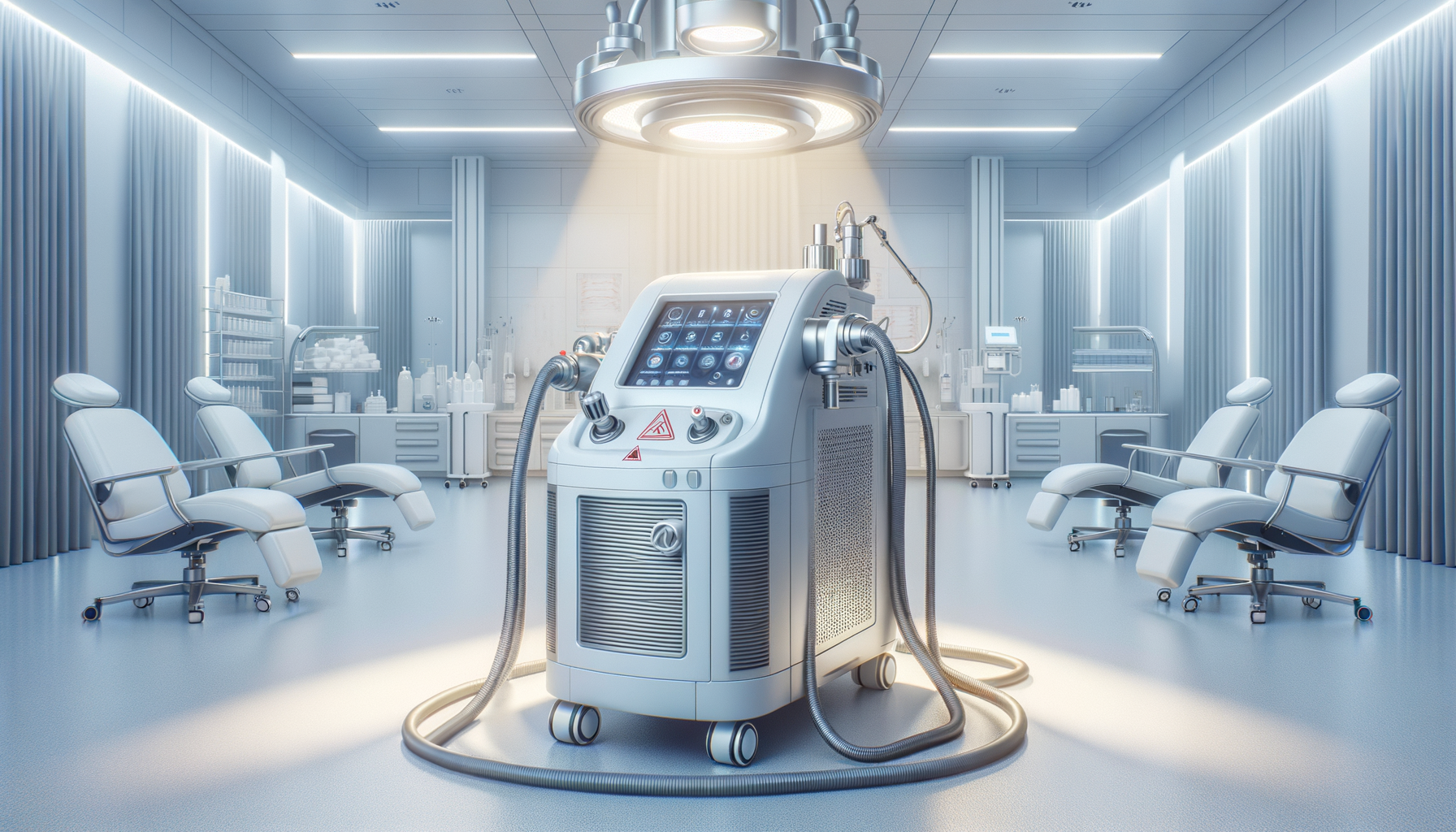Understanding Laser Skin Treatment
Laser skin treatment is a non-invasive procedure that uses focused beams of light to address various skin issues. It has gained popularity due to its effectiveness in treating conditions such as wrinkles, scars, and uneven skin tone. The treatment works by removing the outer layer of skin or stimulating the production of collagen, a protein that helps keep the skin firm and smooth.
There are different types of laser treatments, each tailored to specific skin concerns. For instance, ablative lasers remove the outer layers of skin, making them suitable for treating deep wrinkles and scars. Non-ablative lasers, on the other hand, work beneath the surface skin layer, targeting issues like pigmentation and minor wrinkles without damaging the outer layer.
Laser treatments are performed by dermatologists or trained professionals, ensuring that the procedures are safe and effective. Patients often see noticeable improvements after a few sessions, with results lasting for several months. However, the success of the treatment depends on factors such as the type of laser used, the condition being treated, and the patient’s skin type.
Benefits and Applications of Laser Skin Treatment
Laser skin treatments offer a range of benefits that make them appealing to individuals seeking cosmetic improvements. One of the primary advantages is precision; lasers can target specific areas without affecting surrounding tissues. This precision makes it possible to treat delicate areas like the face and neck effectively.
The applications of laser skin treatment are diverse. Common uses include:
- Reducing fine lines and wrinkles
- Improving skin texture and tone
- Minimizing scars from acne or surgery
- Treating sun damage and age spots
Another significant benefit is the minimal downtime associated with many laser procedures. Unlike surgical options, laser treatments typically require only a short recovery period, allowing patients to return to their daily activities quickly. This convenience, combined with the visible results, contributes to the growing popularity of laser skin treatments.
Potential Risks and Considerations
While laser skin treatments are generally safe, they do carry some risks and potential side effects. Common side effects include redness, swelling, and temporary discomfort in the treated area. These effects usually subside within a few days, but it’s essential for patients to follow post-treatment care instructions to minimize complications.
In rare cases, laser treatments can lead to more severe issues such as scarring, changes in skin pigmentation, or infections. These risks underscore the importance of choosing a qualified and experienced practitioner to perform the procedure. Patients should also disclose their medical history and any medications they are taking, as certain conditions or drugs can increase the risk of adverse effects.
It’s crucial for individuals considering laser skin treatment to have realistic expectations. While the procedure can significantly improve the appearance of the skin, it may not completely eliminate all imperfections. A consultation with a dermatologist can help determine the most suitable treatment plan based on the patient’s specific needs and goals.
Comparing Laser Skin Treatment with Other Options
When considering skin rejuvenation options, it’s helpful to compare laser treatments with other available methods. Chemical peels, microdermabrasion, and dermal fillers are some alternatives that offer different benefits and may be more suitable for certain individuals.
Chemical peels involve applying a chemical solution to the skin, causing it to exfoliate and eventually peel off. This method can improve skin texture and tone but may not be as effective as lasers for deep wrinkles or scars. Microdermabrasion is a less invasive option that gently exfoliates the skin, making it suitable for minor imperfections.
Dermal fillers, on the other hand, involve injecting substances into the skin to add volume and smooth out wrinkles. While fillers can provide immediate results, they do not address skin texture or tone like laser treatments do. Each of these options has its pros and cons, and the choice depends on individual skin concerns and desired outcomes.
Conclusion: Is Laser Skin Treatment Right for You?
Laser skin treatments offer a versatile and effective solution for those looking to enhance their skin’s appearance. With the ability to address a variety of concerns, from wrinkles to scars, they provide a modern approach to skincare that can yield impressive results.
However, it’s important for potential patients to weigh the benefits against the risks and consider their personal goals and skin type. Consulting with a qualified dermatologist can provide valuable insights and help determine if laser treatment is the right choice.
Ultimately, the decision to undergo laser skin treatment should be based on informed research and professional guidance, ensuring that individuals achieve the smooth, radiant skin they desire.




Leave a Reply